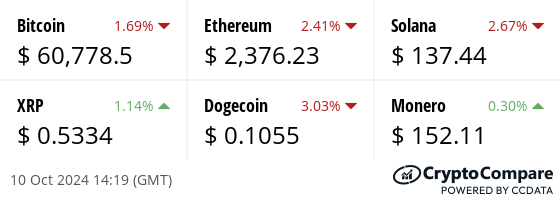At an event at NYU School of Law, U.S. Securities and Exchange Commission (SEC) Chairman Gary Gensler expressed skepticism about the future of Bitcoin and other cryptocurrencies as mainstream payment methods. Gensler argued that it is unlikely that digital currencies will ever play a significant role as forms of payment, instead remaining a store of value, similar to gold or other assets.
Gensler’s comments came in response to an audience question about how cryptocurrencies, which were created to operate outside of government control, would fit into a regulated financial system.
He explained that for centuries, nations have tended to adopt one currency per economic region to ensure stability and efficiency, citing monetary principles dating back to Plato and Aristotle. Gensler referenced Gresham’s Law, a concept from the 19th century that states "bad money drives out good," further explaining why countries are likely to stick with traditional currencies.
Despite the growing popularity of digital assets, Gensler emphasized that cryptocurrencies must prove their value through transparency and disclosure, much like traditional securities. He noted that the SEC is "merit neutral" and that it is ultimately up to the investing public to decide the utility of any given cryptocurrency.
During his discussion, Gensler defended the SEC’s tough regulatory stance, stressing the importance of enforcement actions to maintain market integrity. He warned that the crypto industry is still plagued by "a lot of fraudsters, grifters, and scams," citing the high-profile legal cases involving prominent figures in the industry. He added that current regulations, such as the 1940s-era Howey Test, are sufficient to regulate crypto, rejecting calls for new regulatory frameworks.
Gensler avoided commenting on how the upcoming U.S. presidential election might impact the SEC’s future direction or whether he would remain in his position if former President Donald Trump were to win re-election.







